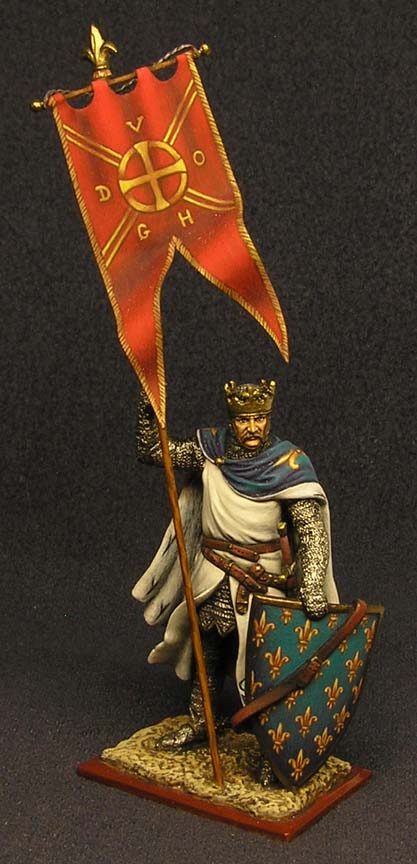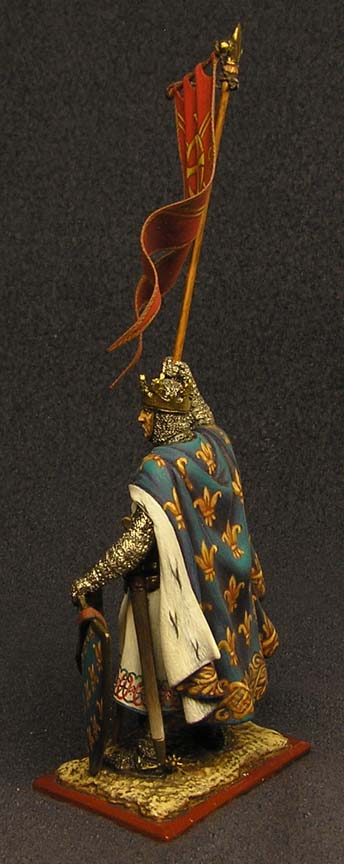Philip II Augustus, King of France


Philip asserted himself early by defeating the combined forces of Flanders, Champagne and Burgundy, acquiring lands for France. He attacked English territories in 1187 and the next year allied with Richard, forced Richard's father Henry II to cede part of Anjou to France.
Philip's brief alliance with Richard the Lionheart was born of expedience to gain lands and to ensure his share of glory. He fought with Richard at Acre, but left for home, leaving Richard to mire himself in the Holy Land. He intrigued against Richard in connivance with Prince John during Richard's captivity in Austria.
Upon Richards's release their war resumed, and though he lost the Angevin territories he outlived his rival and acquired more land by defeating Richard's brother John in 1204. Vast areas that included Anjou, Brittany, Maine, Normandy and Touraine were taken from the English.
Philip's crowning military achievement was the Battle of Bouvines in 1214 where he defeated the alliance of John of England, the Holy Roman Emperor Otto IV and the Count of Flanders.
King Philip died on July 14, 1223 at Mantes-la-Jolie. He was succeeded by his son Louis VIII.



 Up
Up